Publications Library
Type
Topic
Language
Region
Country
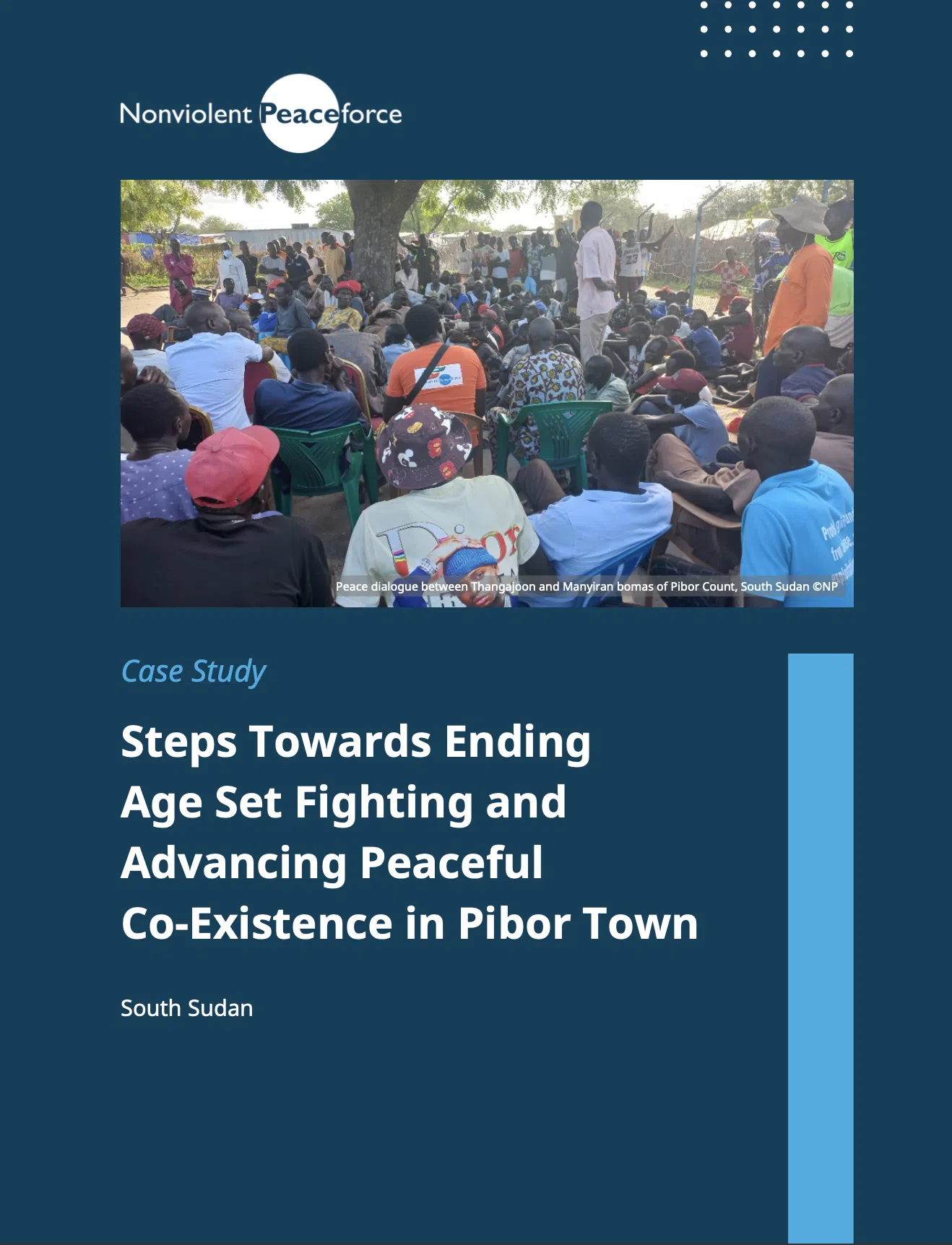
July 2025
Steps Towards Ending Age Set Fighting and Advancing Peaceful Co-Existence in Pibor Town
Case Study
Learn how NP is supporting Pibor Town as the town takes steps towards ending age set fighting and advancing peaceful co-existence.
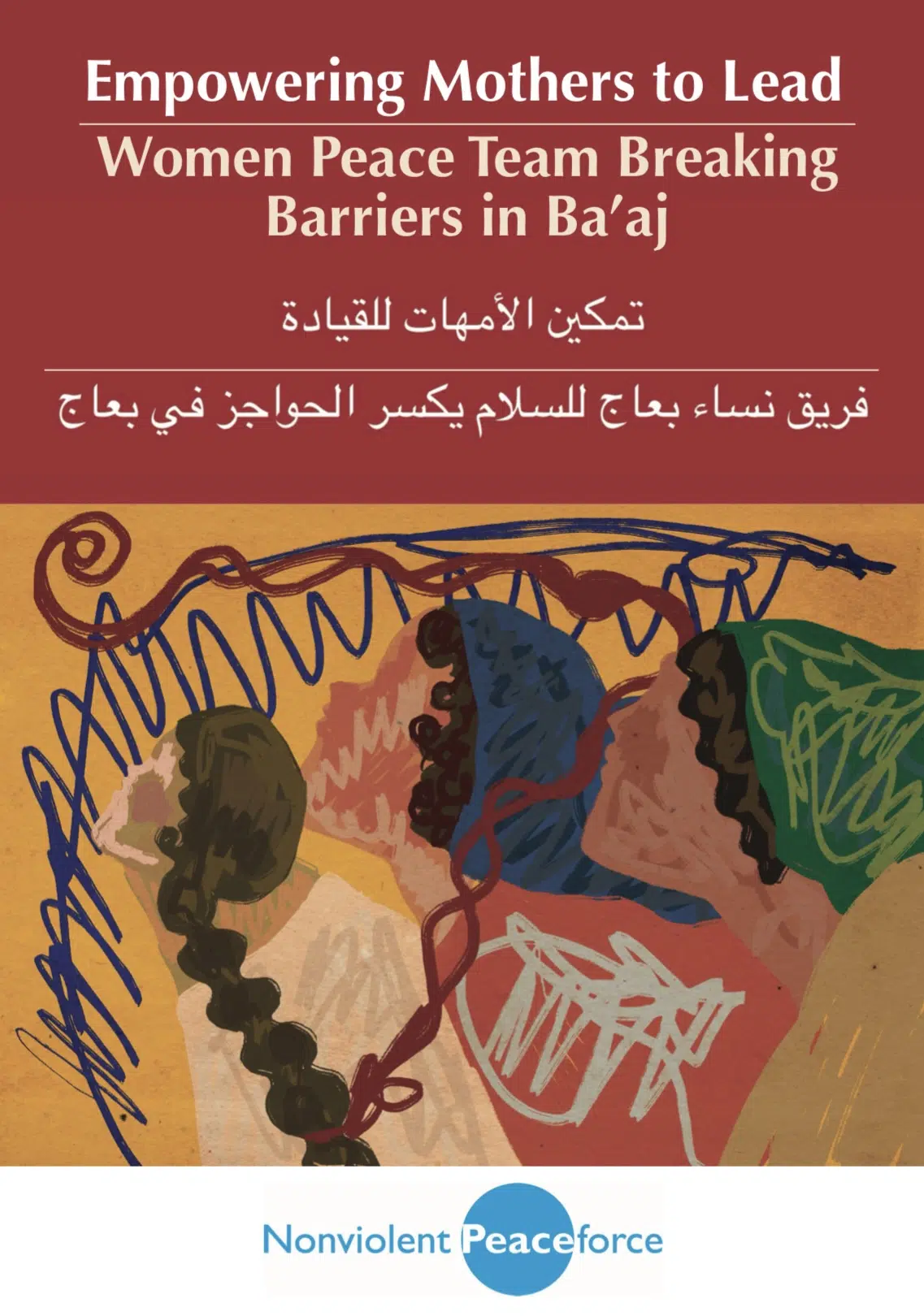
March 2025
Empowering Mothers to Lead: Women Peace Team Breaking Barriers in Ba’aj (Illustrated)
Case Study
In a community where women have long been excluded from decision-making, mothers are breaking barriers and leading a movement for change. What started as simple meetings between teachers and mothers has evolved into a powerful committee, ensuring girls' education and women’s voices are no longer overlooked. (With illustrations and translation in Arabic)
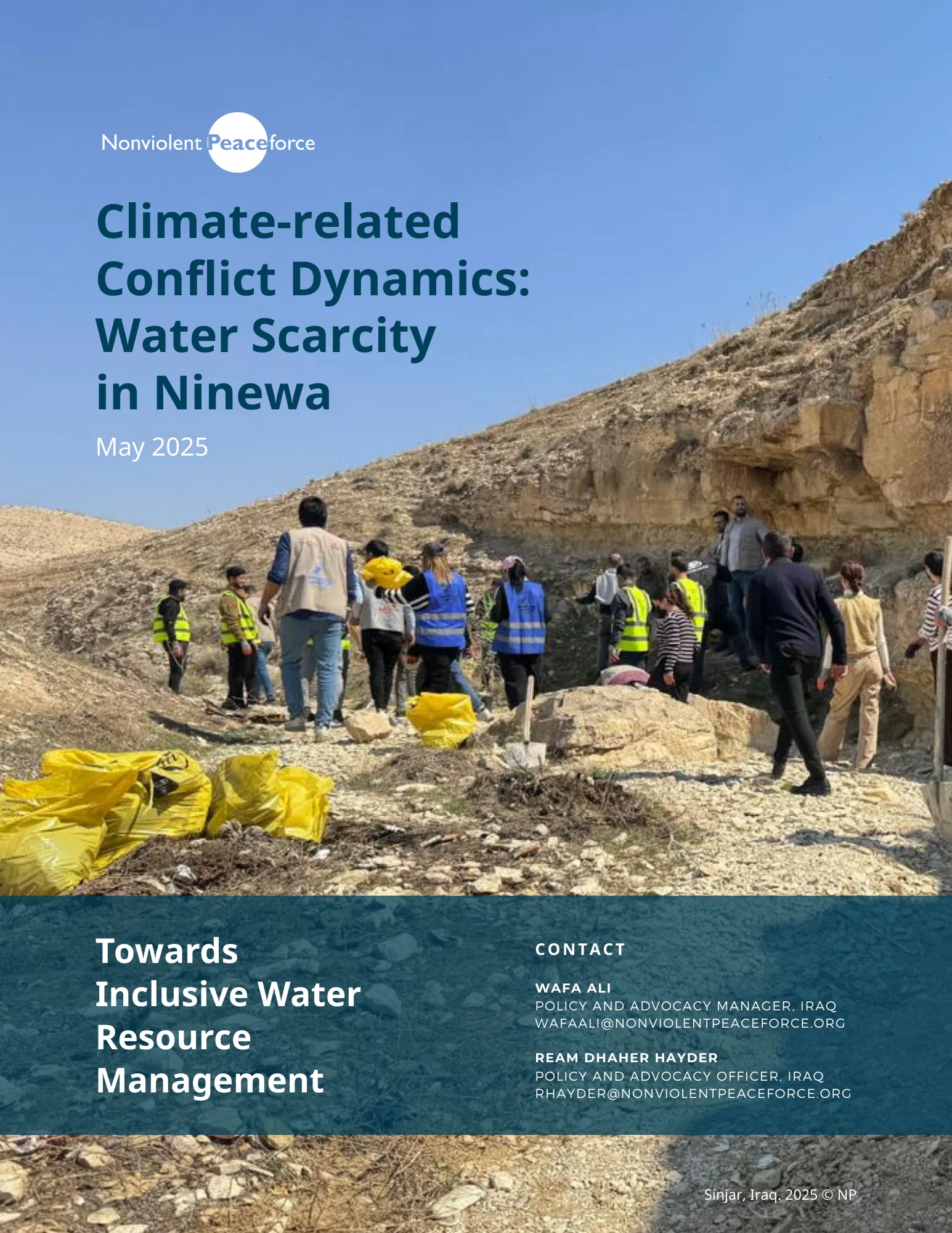
May 2025
Climate-related Conflict Dynamics: Water Scarcity in Ninewa
Programme Brief
This brief explores the intersection between water governance and conflict in Ninewa, where water scarcity evolves into a trigger for local tensions, displacement toward already overstretched towns, and the breakdown of social cohesion. It is aimed at highlighting the urgent need for community-centred approaches to reduce risks and promote sustainable, locally led solutions.
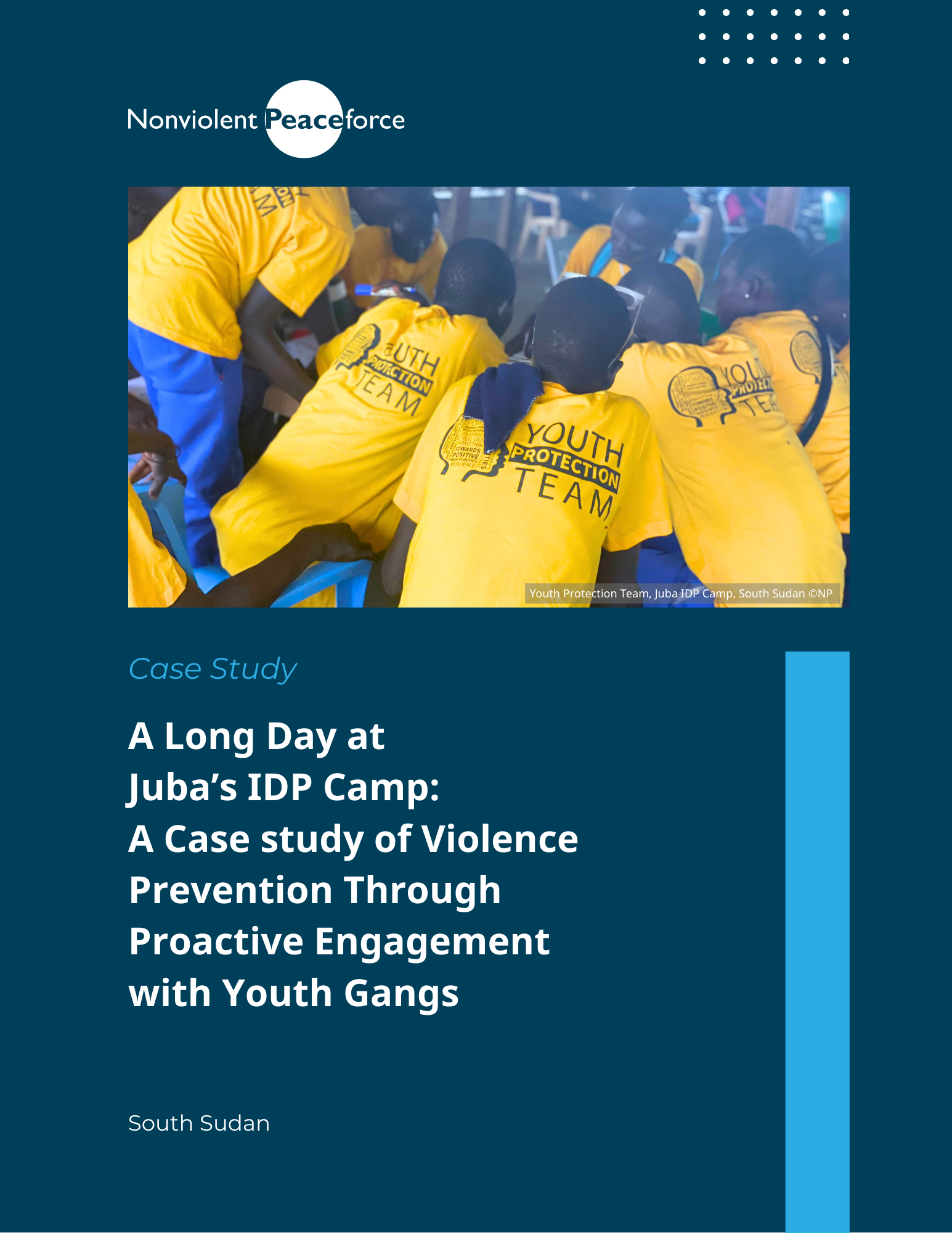
May 2025
A Long Day at Juba’s IDP Camp: A Case study of Violence Prevention Through Proactive Engagement with Youth Gangs
Case Study
Youth in Juba’s IDP camp helped prevent violence against civilians amid rising tensions. Members of the camp’s Youth Protection Teams, trained in nonviolence, drew on long-standing relationships to directly intervene and de-escalate the situation. Their actions prevented further violence and highlighted the impact of community-led protection and unarmed civilian strategies.
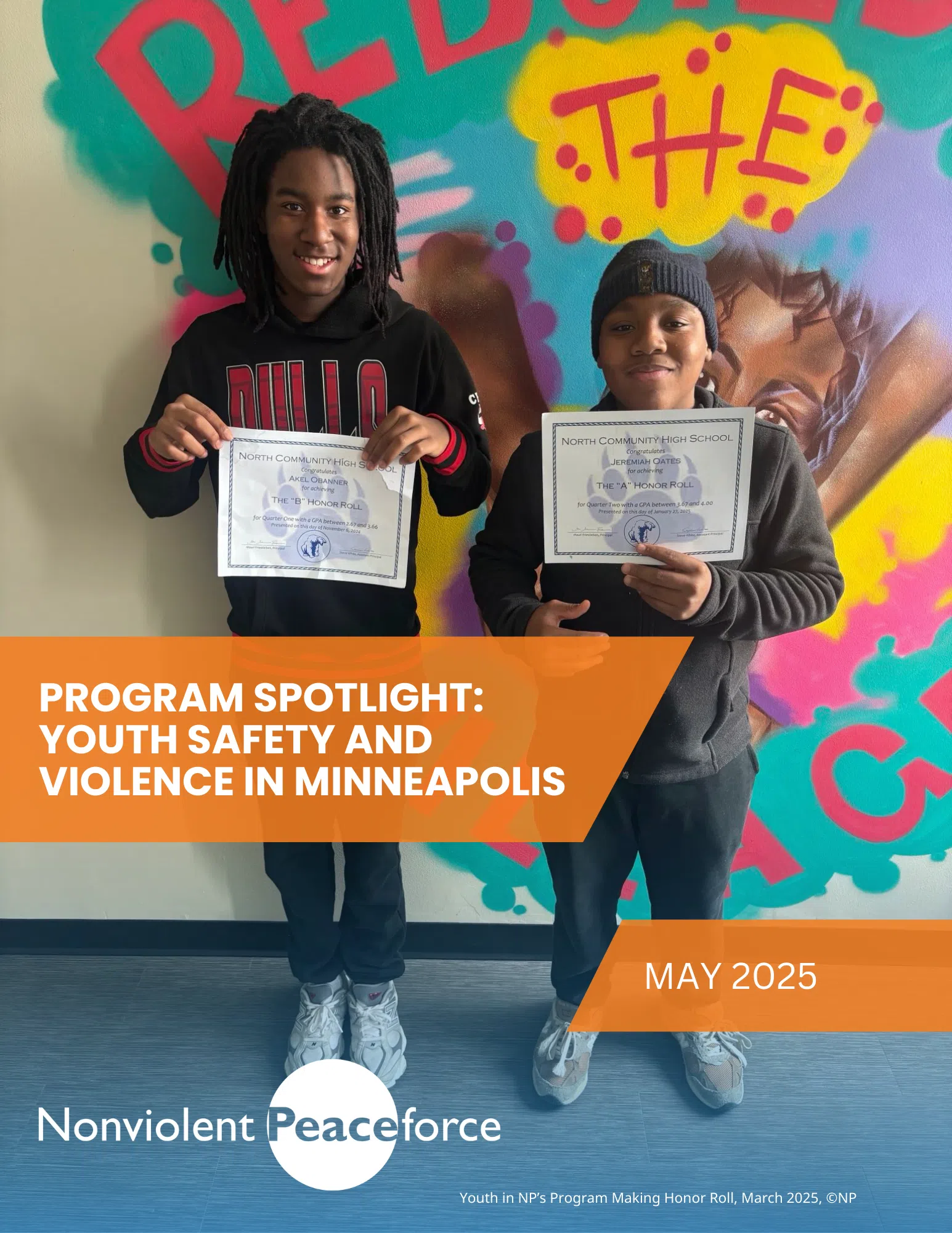
April 2025
Program Spotlight: Youth Safety and Violence in Minneapolis
Programme Brief
Despite promising trends and the lowest rates of gun violence in North Minneapolis in over a decade in 2024, young people, particularly young African American men, continue to face many challenges. In this program spotlight, we highlight the key safety risks that these young people face, the interventions that are making a difference in their lives, and the critical investments that need to be made to sustain this progress.
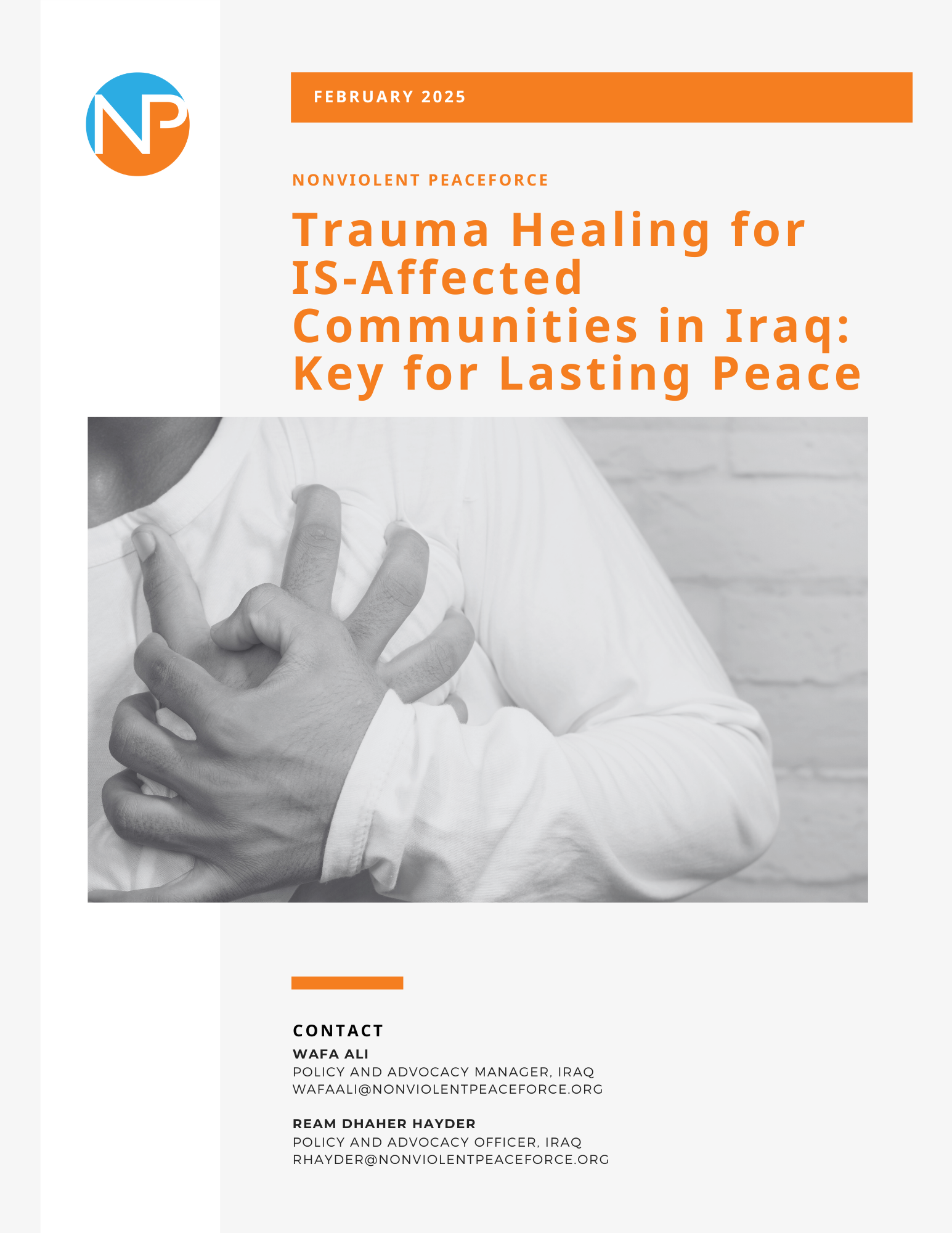
January 2025
Trauma Healing for IS-Affected Communities in Iraq: Key for Lasting Peace
Programme Brief
The legacy of trauma in Iraq, particularly in Ninewa after the IS occupation, continues to hinder social cohesion and peacebuilding. Unresolved trauma fuels cycles of violence, making mental health a critical concern. Addressing trauma healing is essential for community recovery, reconciliation, and sustainable peace. Locally-led initiatives play a key role in bridging gaps in Iraq’s stabilization efforts and ensuring the effectiveness of the Humanitarian-Development-Peace (HDP) nexus. NP’s community-level engagement has often proven impactful in fostering healing and resilience.

November 2024
Localisation in Practice: Implementing Responsible Humanitarian Partnerships in Ukraine
Programme Brief
This brief will share the programmatic interventions implemented by NP in its attempt to bridge risk gaps between responders and assess their impact on asymmetric relationships between international and local actors, identifying where local actors are still absorbing disproportionate risk. Over the course of implementing different strategies, NP and our partners have learned instructive lessons, and this brief seeks to illuminate these so that other organisations and donors can learn from these experiences. We provide these broader recommendations for responsible partnerships for the implementation of localised humanitarian responses and for the better protection of civilians throughout Ukraine and beyond.

October 2024
Intergenerational Violence in South Sudan Snapshot on Pibor
Programme Brief
The Greater Pibor Autonomous Area (GPAA) of South Sudan has been deeply impacted by decades of violence. Tension among community members has escalated along generational lines defined by traditional ‘age sets’, often resulting in widespread intra-communal violence.

October 2024
Snapshot: Online Extortion in South Mosul, Iraq
Programme Brief
Online extortion in South Mosul poses a significant threat to the safety and well-being of women and girls. This harmful practice involves coercing individuals into providing money or sexual favors under the threat of reputational damage, leading to severe emotional and psychological distress and risks of violence. The impact is further compounded by cultural and social norms related to family honor, which can discourage individuals from seeking help or reporting abuse, thereby reinforcing their isolation. This snapshot outlines the current context, challenges in responding to the issue, and provides recommendations for better addressing online extortion of women and girls in South Mosul.

October 2024
Risk, Protection & Locally-Led Humanitarian Response: A Practical Guide to Responsible Partnerships
Issue Brief
NP’s Responsible Partnerships Framework offers practical guidance on how partnerships between INGOs and NNGOs, CSOs, and CBOs can be practiced more responsibly. This overview, and the practical toolkit it introduces, has largely grown out of NP’s partnerships in Ukraine, as outlined in the earlier Responsible Partnerships Brief, which describes the risks faced by Ukrainian organizations responding to civilian needs following the full-scale invasion of Ukraine by Russia in February 2022. NP's approach to responsible partnerships is rooted in Unarmed Civilian Protection, which offers a pathway to intentional engagement with local communities as leaders in their own protection and action.
